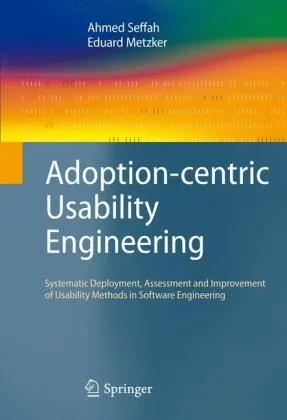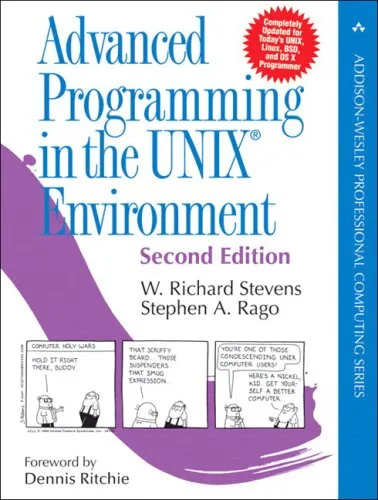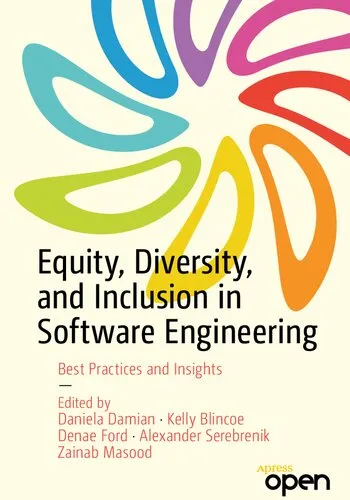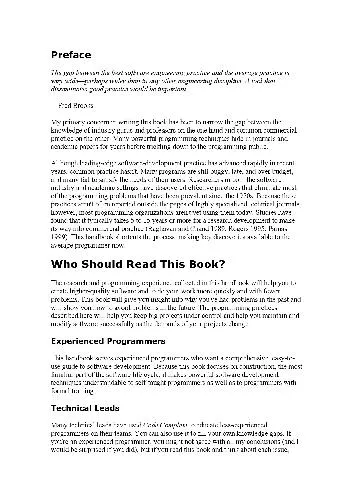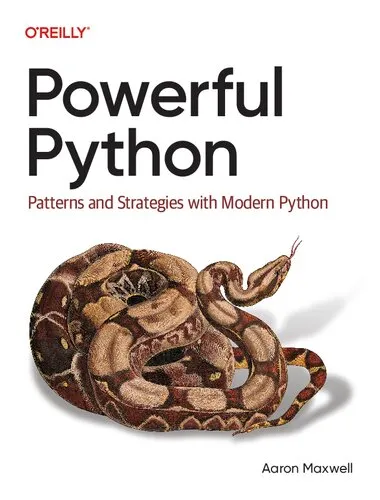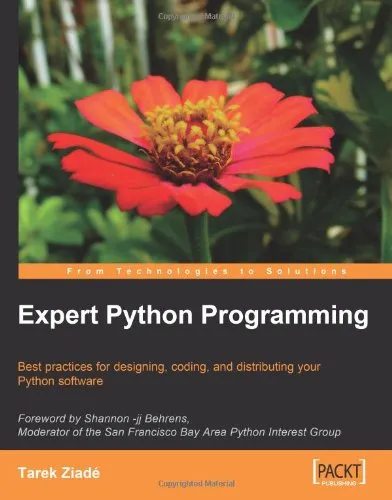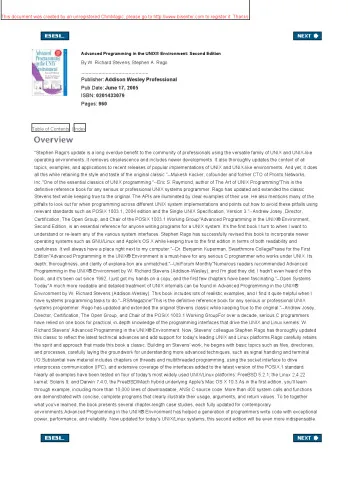Software Engineering: Basic Principles and Best Practices
5.0
بر اساس نظر کاربران

شما میتونید سوالاتتون در باره کتاب رو از هوش مصنوعیش بعد از ورود بپرسید
هر دانلود یا پرسش از هوش مصنوعی 2 امتیاز لازم دارد، برای بدست آوردن امتیاز رایگان، به صفحه ی راهنمای امتیازات سر بزنید و یک سری کار ارزشمند انجام بدینکتاب های مرتبط:
Persian Summary
معرفی کتاب "Software Engineering: Basic Principles and Best Practices"
کتاب "Software Engineering: Basic Principles and Best Practices"، اثری است که به اصول پایهای و بهترین روشهای مهندسی نرمافزار پرداخته و خوانندگان را با جدیدترین و مؤثرترین روشها در این حوزه آشنا میکند.
خلاصهای از کتاب
این کتاب به طور جامع به تحلیل و طراحی سیستمهای نرمافزاری میپردازد و به خوانندگان مفاهیم کلیدی مانند software lifecycle، تحلیل نیازمندیها، و اصول معماری را آموزش میدهد. همچنین این کتاب نحوه مدیریت پروژههای نرمافزاری و بهبود فرآیند توسعه را بیان میکند. در هر فصل، مثالهای عملی و مطالعات موردی ارائه میشود تا مفاهیم به خوبی برای خواننده روشن شود و او قادر باشد این اصول را در محیط واقعی بهکار گیرد.
نکات کلیدی یادگیرنده
- آشنایی با فرآیند توسعه نرمافزار و چرخه عمر آن
- توانمندی در تحلیل و استخراج نیازمندیهای کاربران
- فهم معماری نرمافزاری و طراحی سیستمهای قابل اطمینان
- مدیریت پروژهها و بهکارگیری بهترین روشهای مدیریتی
افراد برجستهی الهامبخش در کتاب
برداشتی از کتاب: "مهمترین هدف در مهندسی نرمافزار این است که سیستمها با کیفیتی بسازیم که به نیازهای واقعی کاربران پاسخ دهد، نه اینکه صرفاً کدی بنویسیم که کار کند."
چرا این کتاب مهم است؟
این کتاب به عنوان یک راهنمای جامع برای متخصصان نرمافزار و همچنین دانشجویانی که به تازگی وارد دنیای مهندسی نرمافزار شدهاند، بحث میکند. به دلیل پوشش گستردهی مباحث اساسی و کاربردی، خوانندگان قادر خواهند بود که با درک بهتری از چالشهای پیشرو، روشهای بهینهتری را برای توسعه و بهرهوری نرمافزارها انتخاب کنند. اهمیت این کتاب در این نهفته است که با رویکردی عملی به همراه تکنیکهای نوین، تلاش میکند تا فاصلهی بین تئوری و عمل را پر کند و تحولی در نگرش و عملکرد در صنعت نرمافزار ایجاد نماید.
Introduction to Software Engineering: Basic Principles and Best Practices
Welcome to a comprehensive exploration into the world of software engineering, where foundational principles meet industry-tested practices to equip you with the tools necessary for crafting robust, scalable software. This book, "Software Engineering: Basic Principles and Best Practices", serves as both a roadmap and a toolkit for navigating the complex landscape of software development. Whether you're a student eager to absorb the foundational concepts or a seasoned engineer looking to refine your craft, this book provides essential insights and guidelines to streamline your processes and enhance your outcomes.
Detailed Summary of the Book
Spanning across several meticulously crafted chapters, "Software Engineering: Basic Principles and Best Practices" begins by grounding readers in the foundational theories of software engineering. It then progressively delves into advanced topics while balancing theoretical discussions with real-world applications. Starting with the history and evolution of software engineering, the book details the core principles that govern well-engineered software products. Readers will explore topics such as software development life cycles, requirements engineering, and system architecture.
Beyond foundational knowledge, the book transitions into practical methodologies including Agile, DevOps, and Lean practices, providing clear distinctions among them and advising when each is most applicable. Case studies are interwoven to provide context, illustrating how principles are applied in different scenarios.
Further, this book addresses contemporary challenges and opportunities arising from trends like cloud computing, AI integration, and cybersecurity. Each topic is discussed with an emphasis on how to maintain best practices to ensure software remains reliable, secure, and maintainable. Ultimately, the book aims to bridge the gap between theoretical knowledge and practical application, fostering a deep understanding of how best practices can be tailored to meet the unique needs of various industries and projects.
Key Takeaways
- Understanding the full software development life cycle and how to manage each stage effectively.
- Fostering a mindset that balances innovation with discipline to adhere to best practices.
- Insights into various development methodologies including Agile, Scrum, and DevOps, and guidance on their implementation.
- Practical strategies for requirements gathering, software design, testing, and maintenance.
- Knowledge on the latest trends in software engineering, including cloud technologies and AI.
Famous Quotes from the Book
"Innovation without direction is like a boat without a rudder - aimless and ineffective."
"The best software is crafted with precision, where every line of code serves a purpose and each design promotes clarity."
"In the ever-evolving field of software, the commitment to continuous learning and adaptation is not optional, but imperative."
Why This Book Matters
This book is not just another guide to software engineering. It stands out by offering a holistic view of the discipline, addressing both time-tested principles and emerging trends. In today's fast-paced technology landscape, keeping up with changes and understanding their implications has never been more crucial. "Software Engineering: Basic Principles and Best Practices" addresses this need by providing reliable frameworks and adaptable strategies that help professionals meet contemporary challenges.
Furthermore, the insights and methodologies detailed in this book are essential for fostering a culture of quality and accountability in software development. By adhering to these best practices, engineers can ensure that their software is not only functional but also sustainable and forward-compatible. This book empowers readers to become leaders in their field, equipped with the knowledge and skills to drive innovation while maintaining excellence at every stage of software development.
دانلود رایگان مستقیم
شما میتونید سوالاتتون در باره کتاب رو از هوش مصنوعیش بعد از ورود بپرسید
دسترسی به کتابها از طریق پلتفرمهای قانونی و کتابخانههای عمومی نه تنها از حقوق نویسندگان و ناشران حمایت میکند، بلکه به پایداری فرهنگ کتابخوانی نیز کمک میرساند. پیش از دانلود، لحظهای به بررسی این گزینهها فکر کنید.
این کتاب رو در پلتفرم های دیگه ببینید
WorldCat به شما کمک میکنه تا کتاب ها رو در کتابخانه های سراسر دنیا پیدا کنید
امتیازها، نظرات تخصصی و صحبت ها درباره کتاب را در Goodreads ببینید
کتابهای کمیاب یا دست دوم را در AbeBooks پیدا کنید و بخرید
1804
بازدید5.0
امتیاز0
نظر98%
رضایتنظرات:
5.0
بر اساس 0 نظر کاربران
Questions & Answers
Ask questions about this book or help others by answering
No questions yet. Be the first to ask!



